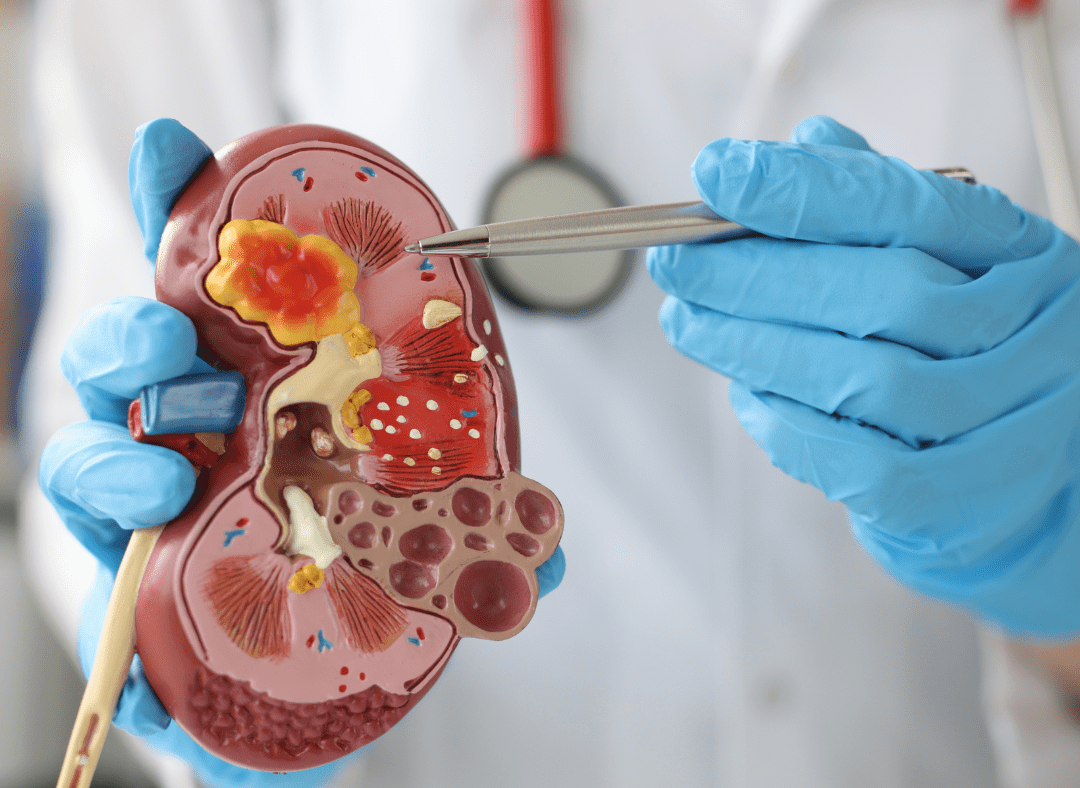What do your kidneys do?
- clean blood by removing waste products
- regulate salt and water in your body
- help keep red blood cell counts normal
- regulate blood pressure
- keep bones healthy and strong, and
- balance your body’s minerals including phosphate and potassium
What is chronic kidney disease (CKD)?
Chronic kidney disease or “CKD” means that your kidneys are not working as well as they should and it covers a range of conditions that may result in long-term kidney damage. For many people, CKD will develop slowly over time, without any symptoms. Therefore, CKD may not be detected until your kidneys are no longer functioning well.
Source: https://mykidneysmyhealth.com/living-with-ckd/what-is-ckd
Stats about CKD
- 1 in 10 Canadians has kidney disease or 4 million people.
- The leading cause of kidney failure is diabetes at 36%.
- The number of people living with end‐stage kidney disease has grown 31% since 2011.
- 46% of new patients are under the age of 65.
- More than 52,000 Canadians are being treated for kidney failure.
- Treatment for those with end‐stage kidney disease
- 57% are on dialysis
- 43% have a functioning transplant
- Of those patients on dialysis, more than three‐ quarters are receiving institutional hemodialysis, the most expensive treatment option.
- Symptoms may not develop until permanent damage has occurred.
- There is no cure for end‐stage kidney disease.
- In 2019, kidney disease was the 10th leading cause of death in Canada.
- 25% of new end‐stage kidney disease patients were late‐referrals, which means they started dialysis only 90 days after first seeing a nephrologist.
Source: https://kidneyalliance.kingbeardreview.com/wp-content/uploads/2022/06/Facing-the-Facts-2022-statistics.pdf

